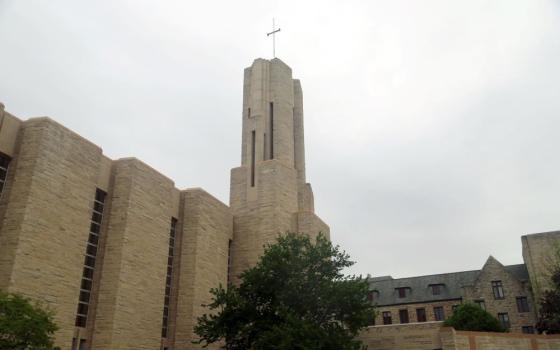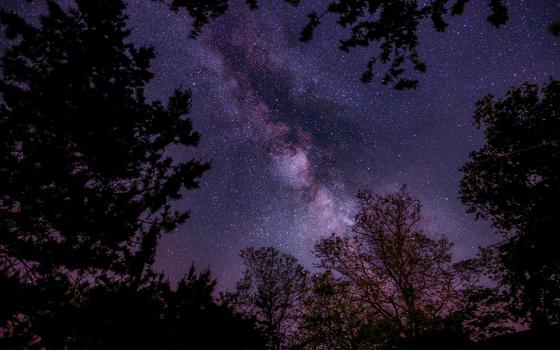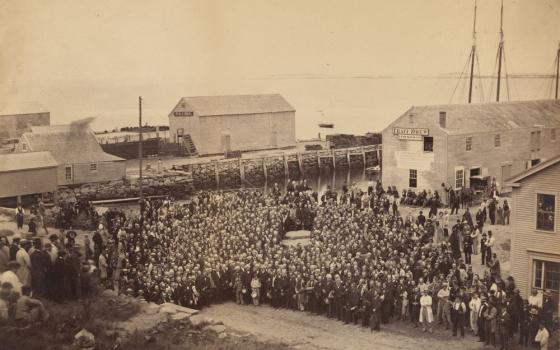By JOHN L. ALLEN JR.
New York
One distorting effect of a major international crisis is the way it can cause an artificial reduction of other important issues to nothing more than epiphenomena of that crisis. In the wake of Regensburg, for example, there’s a tendency these days to construe Pope Benedict XVI’s arguments for “reciprocity,” meaning respect for religious freedom across the board, as little more than a critique of Islamic societies.
While the pope clearly does believe that Islamic states need to do a better job of respecting the rights of their religious minorities, that’s not where the story ends. Benedict and his key Vatican advisers also believe there is an equally serious threat to religious freedom in the developed West – not de jure but de facto, in the strong cultural tendency to exclude religious voices from public debate. One thinks of Alistair Campbell, for example, the legendary communications guru for Prime Minister Tony Blair of England, who in a 2003 interview with Vanity Fair magazine cut short questions about Blair’s religious faith with the epigrammatic line, “We don’t do God.”
That sort of exile of religion from the public sphere is also, in the view of senior Vatican policy makers, a breach of “reciprocity,” and deserves a challenge every bit as tough as that leveled against intolerant applications of shariah. Indeed, one of the reasons that, despite everything, Benedict and his team remain committed to dialogue with Islam is because they believe Muslims are their natural allies in insisting that a civilized society must provide space for religiously and morally serious people to help shape the public culture.
In other words, it may only appear for the moment that the reciprocity issue divides Christians and Muslims. In the long run, and seen in the broad sense which is current in the Vatican, it may actually end up being the cause which brings the two back together.
All this comes to mind in light of the speech delivered yesterday before the General Assembly of the United Nations by Archbishop Celestino Migliore, Permanent Observer of the Holy See.
“My delegation is seriously concerned that freedom of religion or belief does not exist for individuals and communities, especially among religious minorities, in many parts of the world,” Migliore said. “We are also concerned that the high level of religious intolerance in some countries is leading to an alarming degree of polarization and discrimination. We share a grave duty to work together to reverse this trend.”
Though Migliore did not direct his remarks at any particular country or region, it was obvious that he had recent struggles over the role of religion in European society in mind when he made the following observation:
“There appears to exist a recurring case of intolerance when group interests or power struggles seek to prevent religious communities from enlightening consciences and thus enabling them to act freely and responsibly, according to the true demands of justice,” he said. “Likewise, it would be intolerant to denigrate religious communities and exclude them from public debate and cooperation just because they do not agree with options nor conform to practices that are contrary to human dignity.”
Migliore closed with a powerful argument for the public role of religion – certainly not a point directed at the Islamic world, where religion’s role as an arbiter of civic morality and political life is largely unquestioned.
“In our diverse and ever-changing world, religion is more than an internal matter of thought and conscience,” Migliore said. “It has the potential to bind us together as equal and valuable members of the human family. We cannot overlook the role that religion plays in feeding the hungry, clothing the naked, healing the sick and visiting the imprisoned. Nor should we underestimate its power, especially in the midst of conflict and division, to turn our minds to thoughts of peace, to enable enemies to speak to one another, to foster those who were estranged to join hands in friendship, and have nations seek the way to peace together.”
“Religion is a vital force for good, for harmony and for peace among all peoples, especially in troubled times,” he said.
For Western politicians and commentators eager to enlist Pope Benedict and the Holy See in anti-Islamic crusades, seeing in reciprocity a powerful “wedge” issue, Migliore’s address should be a reminder that what the Vatican is truly interested in is not just the right to build churches, but the capacity for churches to build culture. In that regard, the problem is not primarily Islam, but post-Enlightenment Western indifference to the supernatural.
Reciprocity, in other words, is not just for Muslims anymore.
* * *
tAs a footnote, some Vatican officials, seeking to play down any contrast between Pope John Paul II and Benedict XVI, have suggested in conversations with journalists and diplomats that any new emphasis on “reciprocity” under Benedict is entirely a creation of the media, and that in fact both popes have always said entirely the same thing.
Thankfully, Migliore himself has put an end to such artificial efforts to pretend that papal thinking never evolves. In his address yesterday, he said: “My delegation is increasingly convinced of the indispensable importance of reciprocity, which, by its very nature, is apt to ensure the free exercise of religion in all societies.”
The adverb “increasingly” concedes that there has been an evolution in Vatican emphasis, and Migliore’s explicit use of the term “reciprocity” means the issue is not just a journalistic invention.




